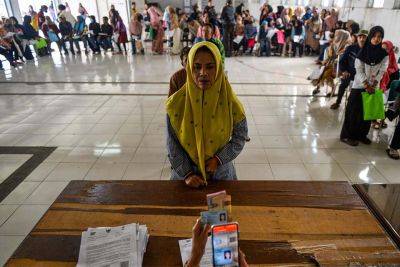Rising concerns over fertility rate and the Indonesian govt’s worrisome response
August 1, 2024
DEPOK – Concern is growing about Indonesia’s declining fertility rate. However, the head of the National Population and Family Planning Board (BKKBN), Hasto Wardoyo, has responded to this by proposing that every woman of reproductive age should give birth to a girl before she turns 35 in order to ensure Indonesia’s regeneration.
As is happening in many parts of the world, there is a rising trend of young people postponing marriage and starting a family. To address the issue, President Joko “Jokowi” Widodo enacted Law No. 4/2024 on maternal and child welfare (KIA Law) that provides six-month maternity leave to allow women to exclusively breastfeed newborns.
House of Representatives Speaker Puan Maharani welcomed the law, saying it would strengthen the bond between mother and child and prevent stunting in children, which remains a challenge the country has yet to fully address.
However, like other controversial laws produced by the current administration, the KIA Law was drafted and passed without meaningful public consultation. It is also unclear what the government wants to achieve with the law.
The total fertility rate (TFR) for Indonesia is 2.14, which means that each woman gives birth to two children on average during her reproductive years. This rate is considered safe because each baby born will replace its parents (replacement level), and therefore the population will remain stable.
The government’s concern could be attributed to the general trend of declining fertility rates, particularly in Asian countries such as Japan, South Korea and Hong Kong. In some countries, childlessness has even become a trend.
TFR is not really a problem in Indonesia. The problem is the government’s response to the







